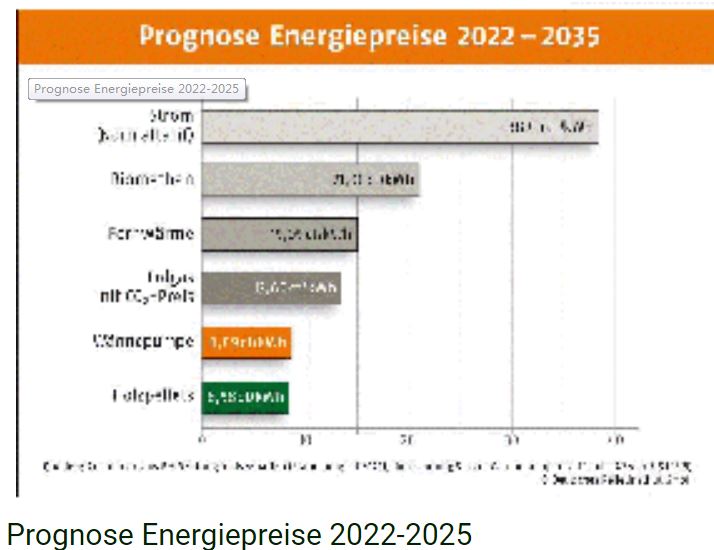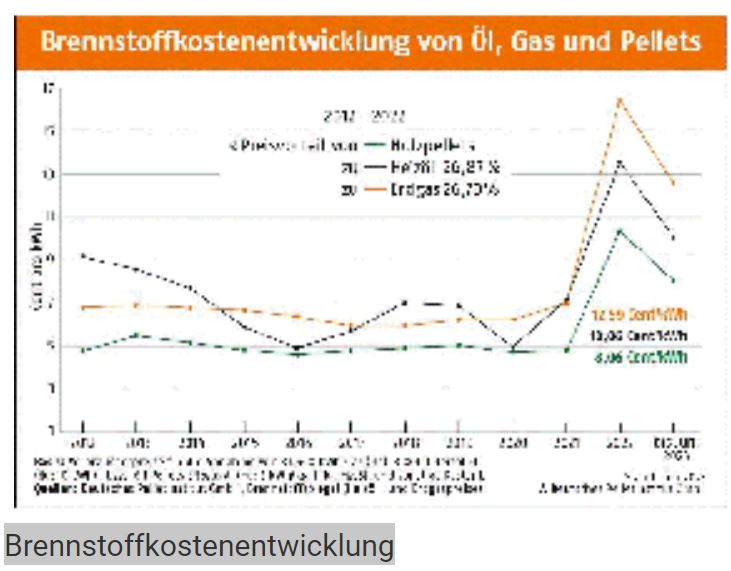
The German government has now published a forecast that wood
pellet fuel will be the cheapest compared to all other energy
sources such as biomethane, district heating, natural gas and
heat pumps for the next 12 years.
BMWK energy price forecast for new heating law - Government sees
wood pellets as cheapest fuel in future.
The German government has now published a forecast of the costs
of various energy sources for the next 12 years. Over this
period, wood pellets, with an average price of 8.58
cents/kilowatt hour (kWh), come off by far the cheapest compared
to all other energy sources listed, such as biomethane, district
heating, natural gas and heat pumps.
"For the domestic energy source, which is produced on the basis
of a widely available domestic residual wood volume, the result
is not surprising," emphasises DEPV Managing Director Martin
Bentele. "Even though the price of pellets rose sharply in the
short term due to the energy price distortions caused by the war
of aggression on Ukraine last year, it generally remains subject
only to slight seasonal price fluctuations, which are mostly
influenced by the construction industry. As a climate-friendly
fuel, however, it is independent of CO2 prices and free of
speculative influences," says Diplom-Forst-wirt Bentele.
For years, Germany has been the European leader in pellet
production and a regular net exporter. In the previous year,
around 3.6 million tonnes (t) were produced. The climate-induced
need for forest conversion towards more mixed stands in the
coming decades will lead to a continued high supply of residual
wood as the basis for pellet production. "The German government
has confirmed this with its statements on the reliability of the
pellet price until 2035," concludes Bentele.
Statements by the Federal Ministry for Economic Affairs and
Climate Protection (BMWK):
The assumptions on energy prices used in the economic efficiency
calculations and for the presentation of the compliance costs
are based on extensive modelling of the energy system and
include possible developments of CO2 prices as well as grid
charges and other levies and charges.
The underlying assumptions on the costs of energy sources are
coherent with the assumptions of the BMWK long-term studies. The
underlying CO2 prices also correspond to the assumptions from
the BMWK long-term scenarios.
Statements by the Federal Ministry for Economic Affairs and
Climate Protection (BMWK):
The assumptions on energy prices used in the economic efficiency
calculations and for the presentation of the compliance costs
are based on extensive modelling of the energy system and
include possible developments of CO2 prices as well as grid
charges and other levies and charges.
The underlying assumptions on the costs of energy sources are
coherent with the assumptions of the BMWK long-term studies. The
underlying CO2 prices also correspond to the assumptions from
the BMWK long-term scenarios.

>>>>>>
 Source
Source: proplanta.de
กก